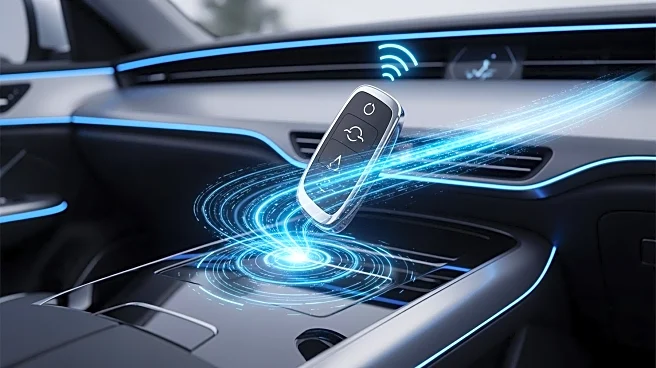What's Happening?
Tesla has introduced a minor yet impactful update to its Full Self-Driving (FSD) suite, aimed at making the system more user-friendly and efficient. The latest version, v14.1.3, has been rolled out to the public after initial testing with Early Access
Program members. A key change in this update is the removal of the 'Brake Confirm' feature, which previously required drivers to press the brake pedal to activate FSD. This feature is now optional and defaulted to the off position, allowing for quicker and more streamlined activation of the self-driving mode. This update is part of Tesla's ongoing efforts to enhance the usability and functionality of its autonomous driving technology.
Why It's Important?
The removal of the 'Brake Confirm' feature represents a significant step towards more seamless autonomous driving experiences. By simplifying the activation process, Tesla is making its FSD technology more accessible and convenient for users, potentially increasing adoption rates. This change could also enhance the overall safety and efficiency of Tesla vehicles, as it reduces the need for driver intervention during activation. As Tesla continues to refine its self-driving capabilities, these incremental improvements contribute to the broader goal of achieving full autonomy, which could revolutionize transportation and impact industries reliant on driving, such as logistics and ride-sharing.
What's Next?
Tesla's ongoing development of its Full Self-Driving suite suggests further enhancements and updates are likely. As the company works towards achieving full autonomy, future updates may focus on reducing human intervention entirely, potentially removing the 'Start Self-Driving' button altogether. This progression could lead to regulatory discussions and adjustments as fully autonomous vehicles become more prevalent. Stakeholders, including policymakers and industry leaders, will need to address the implications of widespread autonomous driving technology, such as safety standards, insurance policies, and infrastructure requirements.
Beyond the Headlines
The evolution of Tesla's Full Self-Driving technology raises ethical and legal questions about the future of autonomous vehicles. As the technology advances, issues such as liability in the event of accidents, data privacy, and the impact on employment in driving-related sectors will become increasingly relevant. Additionally, the cultural shift towards accepting autonomous vehicles as a norm may influence urban planning and public transportation systems, potentially leading to more sustainable and efficient cities.
















